More bad news for patients who have undergone heart surgery in the past five years. A new study suggests about one-third of heater-cooler units used in cardiac procedures remain contaminated with a slow-growing, potentially fatal bacteria.
Heart failure is the leading cause of death in the US. On average, someone has a heart attack every 43 seconds. Heart health is critical to life, and heart-bypass surgery can be a lifesaver to those with heart disease. In recent years, however, researchers have discovered that the equipment used during surgery can spread dangerous bacteria.
Mycobacterium chimaera, or M. chimera, are a type of bacteria usually found in water and soil. While the bacteria rarely cause human illness, they can cause serious problems for patients exposed to it during heart surgery. M. chimera is called an "NTM" for "non-tuberculous mycobacteria." Some of the better-known Mycobacteria are Mycobacterium tuberculosis, which cause the infectious lung infection called tuberculosis. M. chimera does not cause tuberculosis.
What Is the Problem with Cardiac Heater-Cooler Units?
In October 2016, the Centers for Disease Control and Prevention (CDC) notified the public about the risk of infection from contaminated devices used during open-chest heart surgery. The device under investigation is a heater-cooler unit (HCU) used worldwide, that moderates the temperature of the blood and internal organs of a patient undergoing heart bypass surgery. Doctors use HCUs during open-heart surgery when repairing or replacing heart valves.
During heart-bypass surgery, the water tanks in an HCU maintain the temperature of circulating blood as surgeons operate on the heart. While the water does not come into direct contact with the patient or their blood, it can become aerosolized through vents in the machine, agitation, movement of the water, fans in the unit, and other actions. These droplets can remain in the air and contaminate the surgical wound, implanted devices like heart valves, and surrounding tissue.
The US Food and Drug Administration opened an ongoing investigation into the contaminated units in October 2015. Five countries reported infections from contaminated devices. Commentary in The New England Journal of Medicine, concludes: "Our observations highlight the potential for global dissemination of contaminated medical devices, including regions such as Australia and New Zealand."
In October 2016, research in the CDC journal, Emerging Infectious Diseases, reported that the units remain contaminated "despite intensified cleaning and infection." New HCUs acquired in 2014 and cleaned according to manufacturer specifications were contaminated with M. chimera in an average of 174 days.
Also in 2014, testing at a primary manufacturer of these devices identified M. chimera on the production line and water supply at the production facility. The company didn't recall the device, but they did update their instructions for sanitizing the machine.
The CDC reports more than 250,000 heart bypass procedures are conducted each year in the US, and about 60% of those surgeries involve the use of an HCU. Research presented at the June 2017 meeting of the Association for Professionals in Infection Control and Epidemiology reports more than a third of the HCUs used for heart bypass surgery could be contaminated.
Contamination Persists — & May Include Legionella
Despite rigorous disinfection, these devices continue to become, or remain, contaminated. The research presented at the conference paints a dangerous picture for patients who have undergone heart-bypass surgery in recent years. The analysis scrutinized 653 water samples from 89 devices located at 23 hospitals in 14 different states in the US. The researchers conducted the sampling between July 2015, and December 2016.
Overall, 33 of the units, or 37%, tested positive for M. chimera. Additionally, researchers found Legionella, the bacterium that causes the often-fatal Legionnaires' disease, in four of the units.
According to the CDC, the risk of infection with healthcare-associated M. chimera is somewhere between one in 100 and one in 1,000 for patients treated in a hospital where an infection has already happened. The outbreaks occur in small clusters, usually associated with a particular treatment facility. It is possible patients who received implants, like a heart valve, are at higher risk. The infection is not contagious, and often hard to diagnose in time for effective treatment.
While infection with M. chimera is rare; the bacteria can silently grow without a sign of its presence. Given that a potential one-third of HCUs in the US could be contaminated with these and other pathogens raise serious concern. There is no test to show whether you have been exposed to the bacteria, the only way to diagnose the infection is to culture the bacteria from tissue samples.
As with all infections, early treatment is essential to avoid complications, chronic illness, or death, yet many patients may not realize there are infected. Although you may have had heart-bypass surgery more than a year ago, exposure to the bacteria leaves you at risk for symptoms that could include:
- Nausea, vomiting
- Pain, especially when located in the abdomen
- Fever, fatigue, weight loss
- Night sweats
- Redness, heat, or signs of infection at the surgical site
John Rihs, who presented the research, commented in a press release:
The extent of contamination from such a rare organism in multiple units from all over the country was surprising. Some devices remained positive for M. chimera for months, indicating that disinfection can be difficult and routine testing is advisable. Beyond M. chimera, we found other NTM species, Legionella, and fungi, indicating these units are capable of supporting a diverse microbial population.
If you, or a loved one, has undergone open-heart surgery or has a procedure upcoming, talk to your surgeon about contamination concerns and keep an eye out for symptoms.
Just updated your iPhone? You'll find new emoji, enhanced security, podcast transcripts, Apple Cash virtual numbers, and other useful features. There are even new additions hidden within Safari. Find out what's new and changed on your iPhone with the iOS 17.4 update.










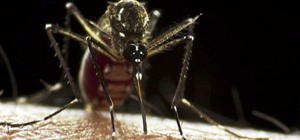







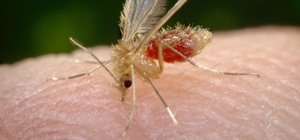




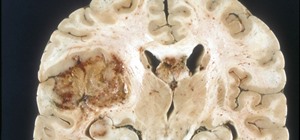
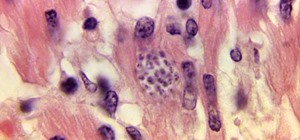
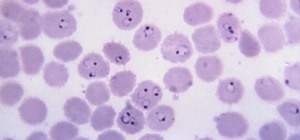


Be the First to Comment
Share Your Thoughts